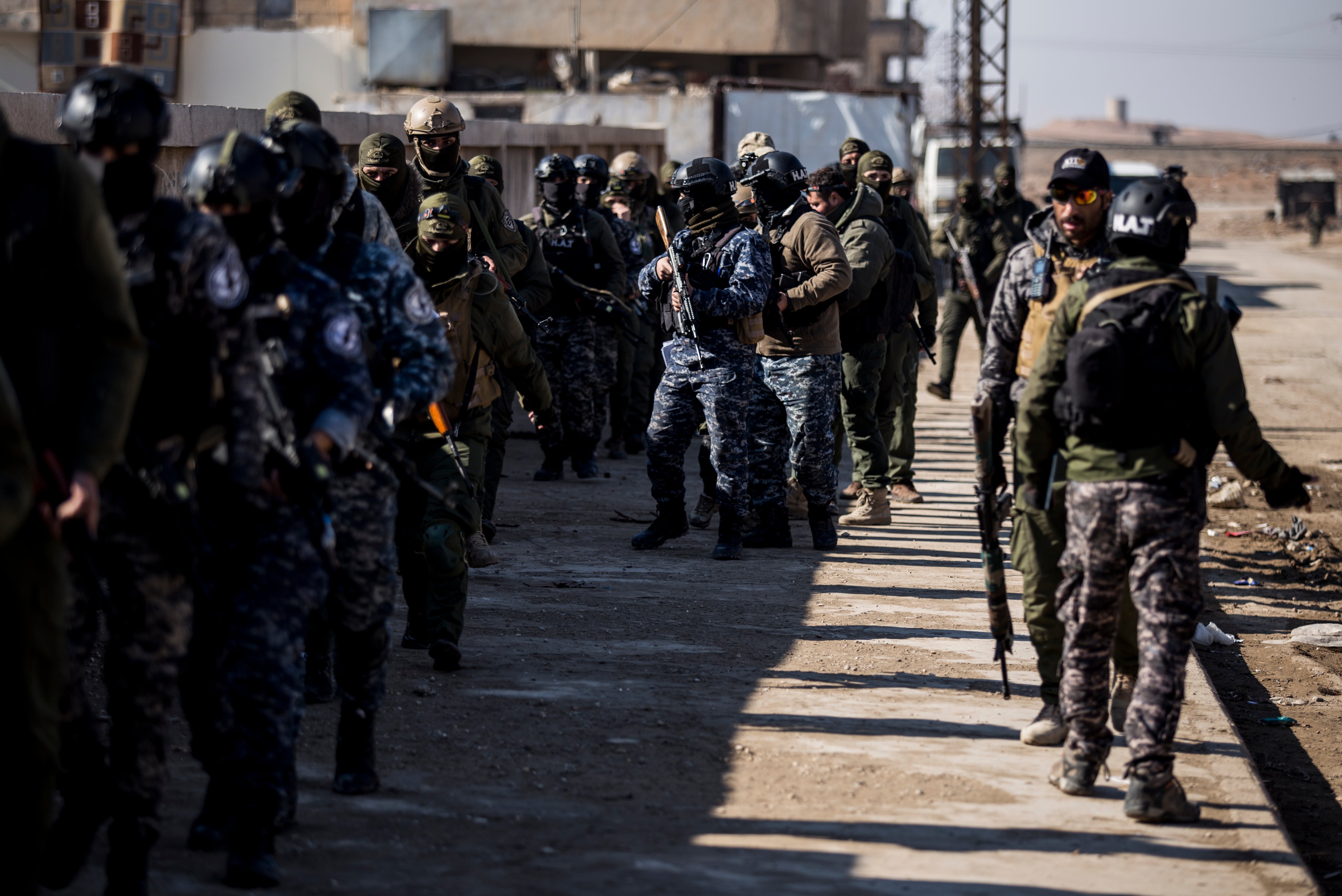Watchdog says 100s of boys missing from Kurdish Syria prison
An international human rights group says hundreds of boys are missing from a Syrian Kurdish prison that held members of the Islamic State group and their families, after the U.S.-backed Kurdish forces fought IS militants for 10 days to retake the facility

Your support helps us to tell the story
From reproductive rights to climate change to Big Tech, The Independent is on the ground when the story is developing. Whether it's investigating the financials of Elon Musk's pro-Trump PAC or producing our latest documentary, 'The A Word', which shines a light on the American women fighting for reproductive rights, we know how important it is to parse out the facts from the messaging.
At such a critical moment in US history, we need reporters on the ground. Your donation allows us to keep sending journalists to speak to both sides of the story.
The Independent is trusted by Americans across the entire political spectrum. And unlike many other quality news outlets, we choose not to lock Americans out of our reporting and analysis with paywalls. We believe quality journalism should be available to everyone, paid for by those who can afford it.
Your support makes all the difference.Hundreds of boys are missing from a Syrian Kurdish prison that held members of the Islamic State group and their families, after the U.S.-backed Kurdish forces fought IS militants for 10 days to retake the facility, an international human rights group said Friday.
The report by Human Rights Watch came a day after IS’s top leader, Abu Ibrahim al-Hashimi al-Qurayshi was killed in a U.S. raid on his safehouse in northwest Syria. President Joe Biden said al-Qurayshi had been responsible for the Syria prison assault, as well as genocide against the Yazidi people in Iraq in 2014.
The children are from a mix of backgrounds and nationalities. Some were brought from their own countries by their jihadi parents who joined the so-called “caliphate” declared in 2014 over parts of Syria and Iraq, while others were born there.
They were incarcerated because many governments have refused to repatriate them, while Kurdish authorities have expressed concern they may have extremist tendencies.
It is unclear how many of the boys in the prison were trained by IS, or whether any had committed crimes.
The prison in Syria’s northeastern city of Hassakeh, known as Gweiran or al-Sinaa, held over 3,000 inmates, of which some 600 were children.
“The Syrian Democratic Forces began evacuating men and boys from the besieged prison days ago, yet the world still has no idea how many are alive or dead,” said Letta Tayler of Human Rights Watch, speaking of the Kurdish-led force.
While boys were held separately from adults, the groups mixed when IS militants stormed the prison in a jailbreak on Jan. 20. Some inmates escaped, while others including child detainees were taken hostage in the ensuing battle.
At a press conference on Monday, SDF commander Nowruz Ahmad stated that her forces had gained total control of the prison and confirmed that 77 prison employees, 40 Kurdish fighters, and 4 civilians were killed, alongside 374 IS detainees and attackers. She provided no breakdown of the dead detainees, or how many of them were children.
A Canadian detainee interviewed by the New York-based rights group said he believed “tens of children” were killed.
The US-led coalition against IS said the escaped detainees were being held at a more secure facility.
The HRW report urged the SDF to allow international humanitarian groups to visit detainees it has evacuated or recaptured from the prison, and to provide basic care.
“The al-Sinaa prison crisis was the predictable result of governments turning a blind eye to the fate of their nationals and all others held in horrific conditions in northeast Syria,” Tayler said.
“This assault should be a wakeup call to countries that outsourcing responsibility for their nationals won’t make this problem go away,” she said. “It will only increase the suffering of these detainees, most of them young children.”